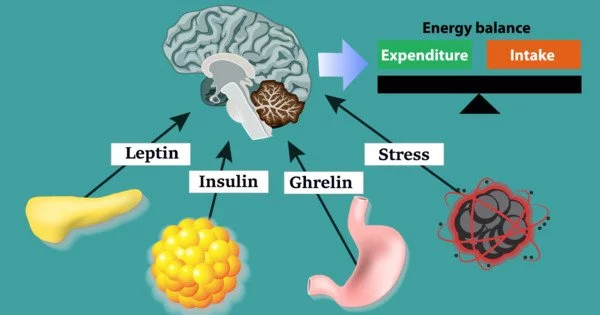Ghrelin, a peptide hormone produced primarily by the stomach and released into the bloodstream, is referred to as the hunger hormone. Ghrelin is important in regulating appetite and promoting the sensation of hunger. Its levels typically rise before meals and fall afterward. Ghrelin levels rise when the stomach is empty, signaling the brain that it is time to eat. Ghrelin levels decrease when the stomach is stretched after a meal.
Ghrelin is a hormone produced by enteroendocrine cells in the gastrointestinal tract, particularly the stomach, and is commonly referred to as a “hunger hormone” because it increases the desire to eat. Ghrelin levels in the blood are highest before meals when people are hungry, and they return to normal after meals. Ghrelin may aid in food preparation by increasing gastric motility and stimulating gastric acid secretion.
Ghrelin affects the hypothalamus, a brain region that regulates appetite and energy balance. It increases food intake by stimulating the release of neuropeptide Y. Ghrelin also influences growth hormone release and has other metabolic effects.
The primary functions of ghrelin include:
- Stimulation of Appetite: Ghrelin tells the brain to stimulate appetite and eat more. It works on the hypothalamus, which is the part of the brain that controls hunger and satiety.
- Energy Balance: Ghrelin helps to maintain energy balance by increasing calorie intake. Ghrelin levels rise when the stomach is empty, signaling hunger and prompting the individual to seek and consume food.
- Regulation of Growth Hormone Release: Ghrelin also controls the release of growth hormone from the pituitary gland. This function has nothing to do with its role in appetite regulation.
Ghrelin levels are influenced by a number of factors, including meal timing, food composition, and body weight. Ghrelin levels, for example, typically rise before regular meal times, and they are higher in people who are underweight.
Understanding the role of ghrelin and other appetite-regulating hormones is critical for research on obesity, eating disorders, and metabolic diseases. Researchers are looking into ways to manipulate ghrelin levels as a possible therapeutic target for weight loss.
















